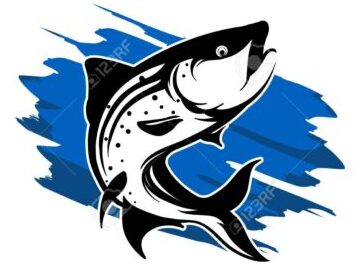Is Fish a Meat? Exploring the Culinary Conundrum
Table of Contents
In the vast realm of culinary debates, one question has lingered for centuries like a tantalizing aroma wafting through the kitchen – is fish a meat? This seemingly simple query has sparked curiosity and contemplation among food enthusiasts and researchers alike, prompting a journey into the nuances of categorizing what we consume from the sea.
As we delve into the depths of this piscine puzzle, recent research findings shed light on the factors influencing the quality of frozen fish and fish products during storage[1]. Meanwhile, innovative studies are challenging the norms of traditional meat sources by exploring the development of ‘aquatic clean meat’ from fish cells, presenting a sustainable solution to utilize fish waste material[2].
In a world where food production is undergoing a revolutionary transformation, the concept of cultured meat, fish, and dairy products has emerged as a focal point[3]. As we navigate this intersection of tradition and innovation, the line between fish and meat blurs, inviting us to ponder the essence of these culinary classifications.
So, join us on this gastronomic exploration as we unravel the enigma of whether fish truly falls under the realm of meat. Let’s embark on a journey that transcends taste buds and challenges preconceived notions, all in pursuit of understanding the essence of what we consume from the waters.
Is Fish Considered Meat?
Is Fish a Meat? Fish vs. Meat: Understanding the Culinary Distinction
When it comes to the age-old debate of whether fish can be considered meat, the answer may surprise many. While from a biological standpoint, fish are indeed classified as a type of meat due to their animal origin, the culinary world often makes a clear distinction between the two. In culinary terms, meat typically refers to the flesh of land animals like beef, pork, or poultry, whereas fish is a separate category altogether.
Is Fish a Meat? The Versatility of Fish in Gastronomy
Despite the technical classification of fish as meat, its unique properties and flavor profiles set it apart in the culinary landscape. Fish offers a lighter alternative to traditional meat dishes, making it a popular choice for those seeking a healthier option. Whether grilled, baked, or pan-seared, fish dishes provide a delicious and nutritious addition to any menu. So next time you ponder the question, “” remember that while it may fall under the broad category of meat, its versatility and culinary distinctiveness make it a standout ingredient in its own right.

Nutritional Differences Between Fish and Meat
The Debate: Is Fish a Meat?
When discussing the Is Fish a Meat?, one of the key debates often arises – is fish considered a type of meat? Some argue that fish should be classified separately from meat due to its unique characteristics, such as being a great source of omega-3 fatty acids and being lower in calories compared to traditional meats like beef or pork. On the other hand, others categorize fish as a type of meat based on its protein content and role as a source of animal protein.
Nutritional Variances
While the debate on whether fish is a meat continues, it’s essential to highlight the nutritional variances between the two. Fish is known for its high protein content, omega-3 fatty acids, and lower levels of saturated fat compared to certain meats. On the contrary, meat, depending on the type, can be rich in protein but may also contain higher levels of saturated fat, which can impact heart health when consumed in excess. Understanding these nutritional differences can help individuals make informed decisions when selecting between fish and meat in their diet.

Religious Perspectives on Eating Fish
Religious Perspectives on the Consumption of Fish
Is Fish a Meat? In various religious traditions, consuming fish holds a unique significance that diverges from the classification of meat. For example, in certain cultures, fish is considered a permissible food source during fasting periods where other meats are restricted. This distinction stems from interpretations of religious texts that differentiate between fish and other types of animal protein.
Symbolism and Spiritual Connections
Moreover, fish often carries symbolic meanings in religious contexts, representing concepts like abundance, fertility, and spiritual nourishment. In some belief systems, fish are associated with miraculous events or are revered as sacred creatures. The act of consuming fish can thus be viewed as a way to connect with spiritual teachings and divine elements, illustrating the rich tapestry of religious perspectives on this particular food source.

Environmental Impact of Consuming Fish
Impact of Fish Consumption on the Environment
Consuming fish has a profound environmental impact that often goes unnoticed. Overfishing depletes natural fish populations and disrupts marine ecosystems, leading to imbalances in species diversity. The use of harmful fishing practices, such as bottom trawling, further damages fragile marine habitats, including coral reefs and seagrass beds. Additionally, the carbon footprint of commercial fishing operations contributes to climate change through fuel consumption and emissions.
Green E-Commerce and Sustainable Fish Consumption
As consumer awareness of environmental issues grows, the demand for sustainably sourced fish is on the rise. Green e-commerce companies can capitalize on this trend by promoting traceable and eco-friendly fish products. Incorporating long-tail keywords related to sustainable fish consumption in their SEO strategy can help these companies reach conscientious consumers seeking to minimize their environmental footprint [1]. By emphasizing fish traceability and sustainability in their marketing efforts, businesses can enhance transparency, build consumer trust, and contribute to the preservation of marine ecosystems [2].

Health Benefits of Including Fish in Your Diet
The Nutritional Power of Fish
When it comes to the , you’re in for a treat. Fish, especially fatty varieties like salmon and mackerel, are rich in essential nutrients that your body craves. These include omega-3 fatty acids, which are excellent for heart health and brain function. Additionally, fish is a fantastic source of high-quality protein, making it an excellent option for those looking to build and maintain muscle.
Heart Health at Its Finest
Incorporating fish into your diet can do wonders for your heart. Studies have shown that regular fish consumption, at least twice a week, can significantly reduce the risk of heart disease. This is due to the omega-3 fatty acids present in fish, which help lower blood pressure, reduce inflammation, and improve overall cardiovascular health. So, next time you’re wondering whether fish is meat, remember the incredible benefits it offers for your well-being.
Is Fish a Meat?
Yes, fish is considered meat. Fish are animals that we consume, and eating the flesh of an animal falls under the common definition of meat[3].
Why is fish not classified as meat?
Fish being classified differently from traditional meats like beef, pork, and poultry stems from cultural and religious distinctions rather than scientific reasons. While fish are animals and consuming them is eating meat, some may differentiate due to historical reasons or personal beliefs[1].
What nutrients does meat/poultry/fish contribute to our diet?
Meat/poultry/fish contribute important nutrients to our diets, including protein, saturated fat, iron, and zinc. These sources collectively provide a significant portion of our daily energy intake and essential nutrients[2].
Closing Remarks: Is Fish a Meat?
In conclusion, the debate over whether fish should be classified as meat continues to spark discussions among individuals and cultures worldwide. While some argue that fish should be considered a type of meat due to its animal origin, others point to distinctions in nutritional composition and culinary practices. Ultimately, the categorization of fish as meat or not may vary depending on personal beliefs and dietary choices. As you reflect on this topic, remember that keywords play a crucial role in optimizing your content for search engines. By incorporating relevant SEO keywords strategically throughout your article, you can enhance its visibility and reach a wider audience interested in this intriguing debate.[1]







